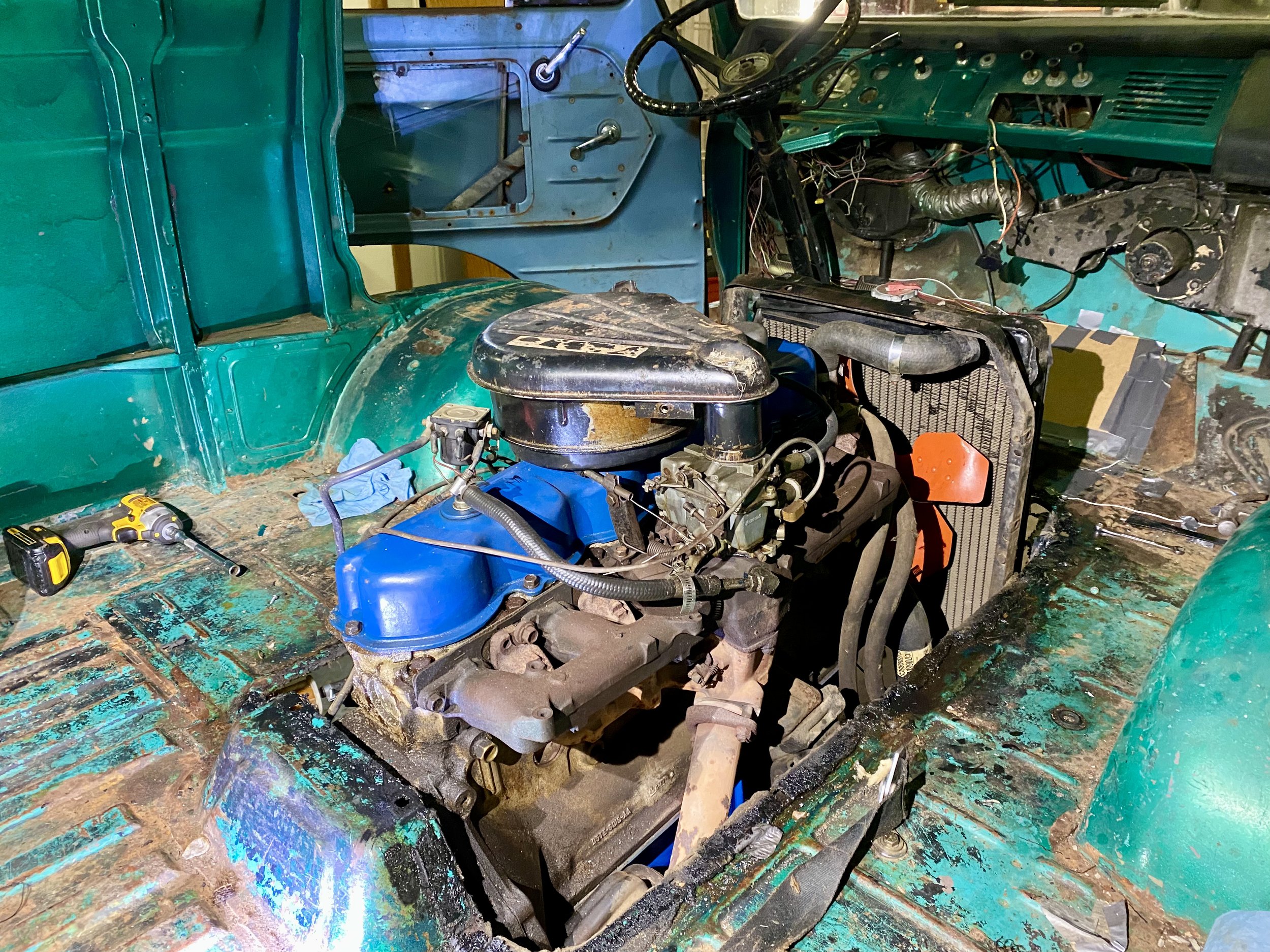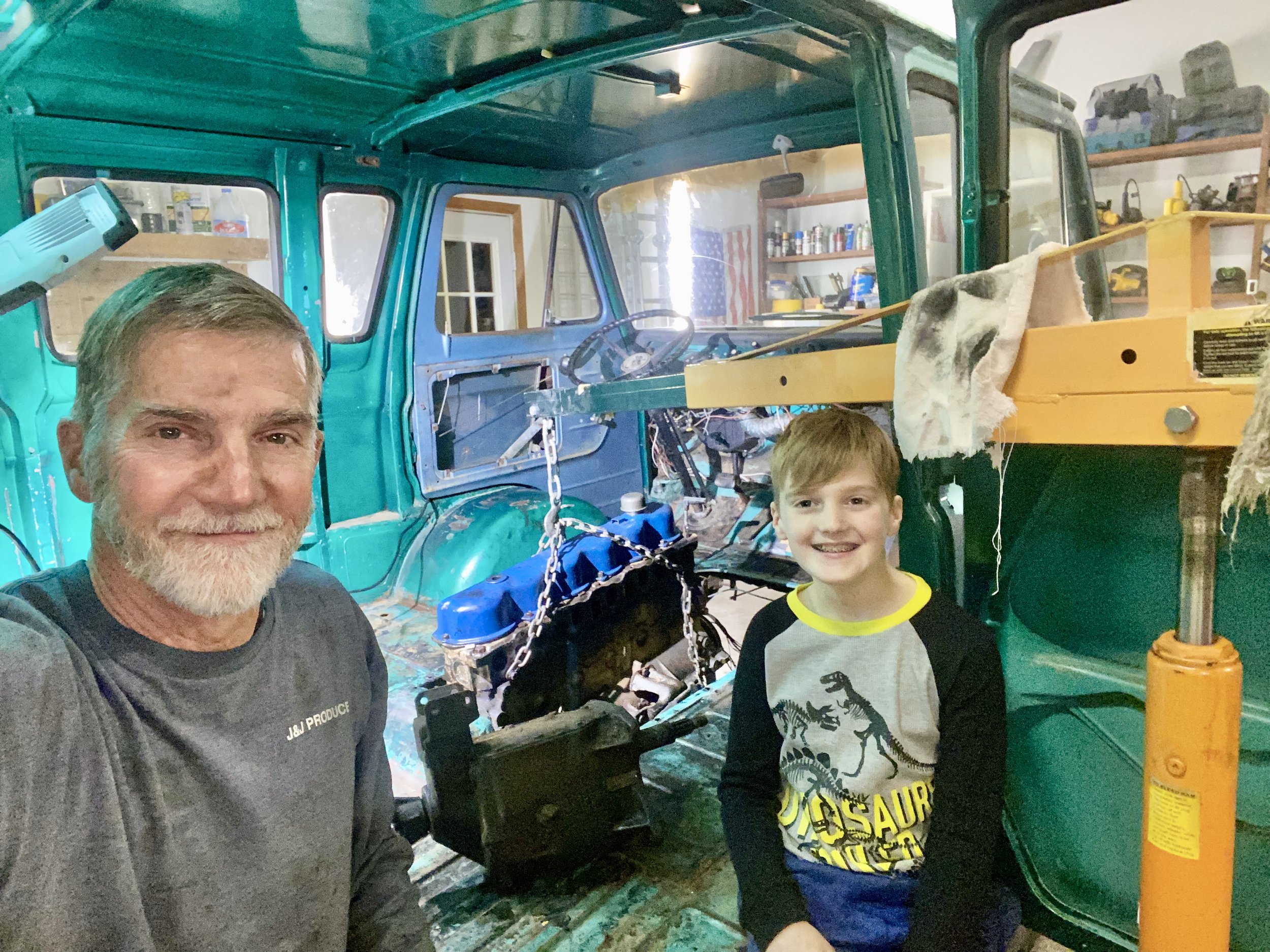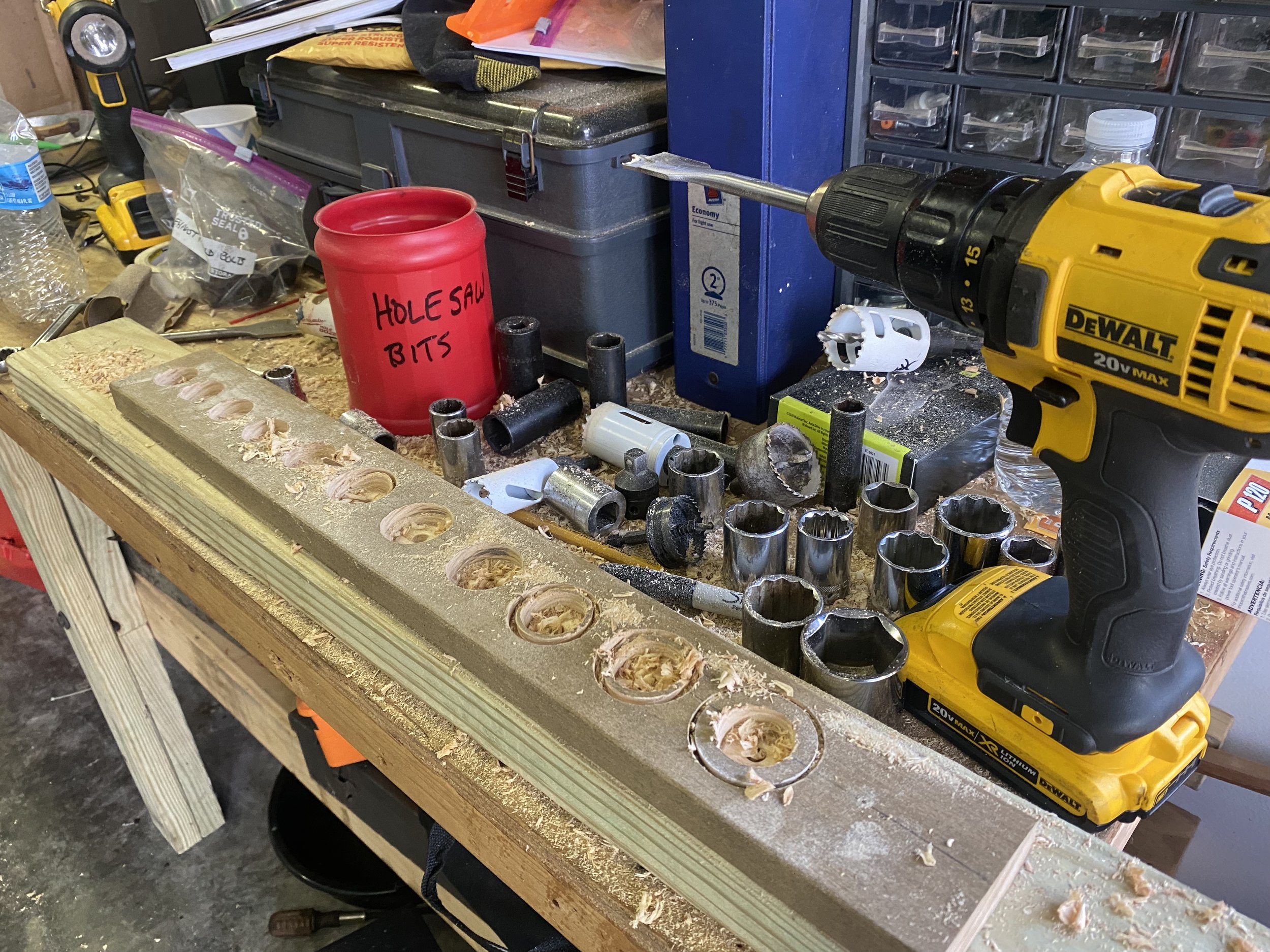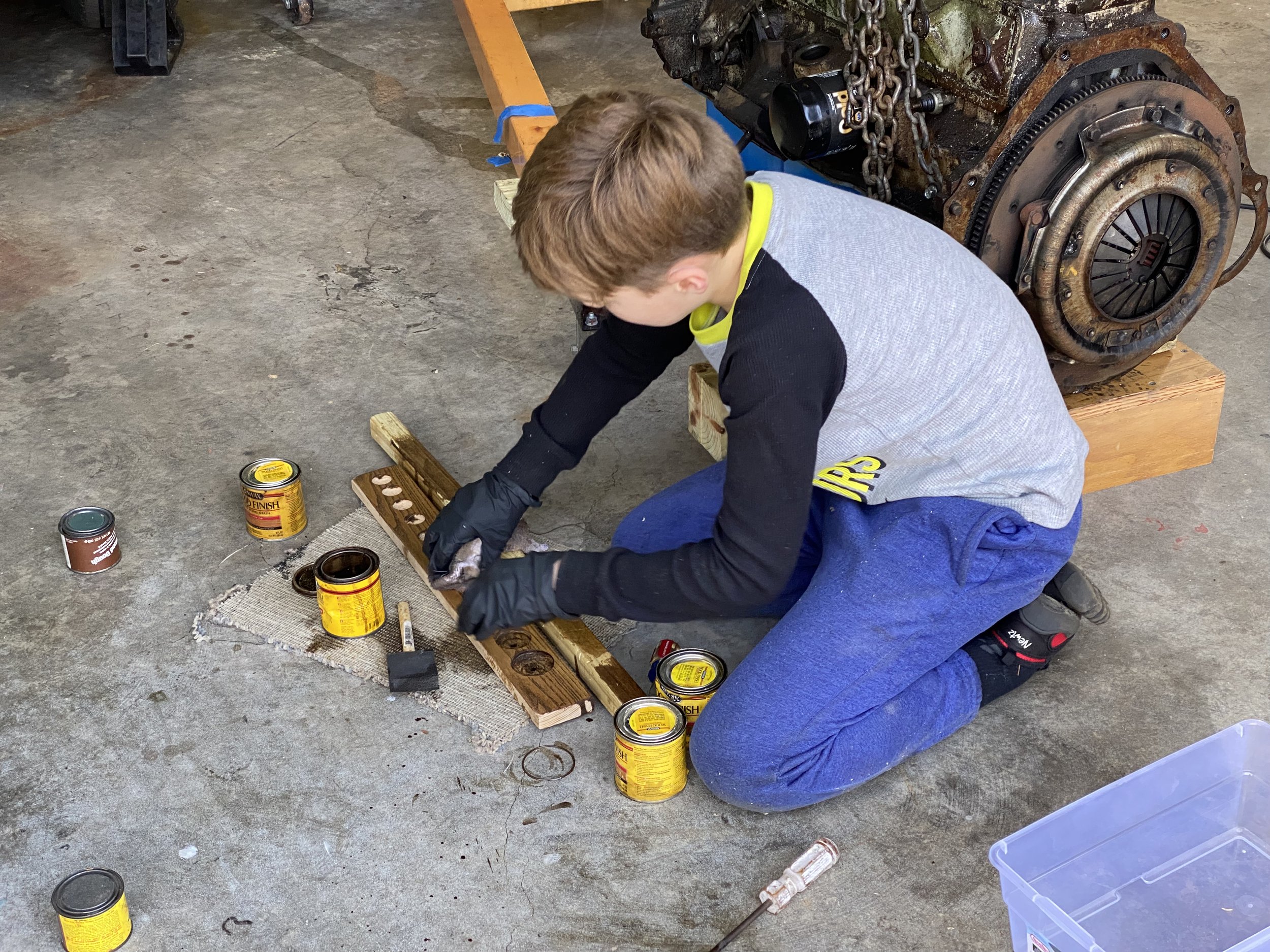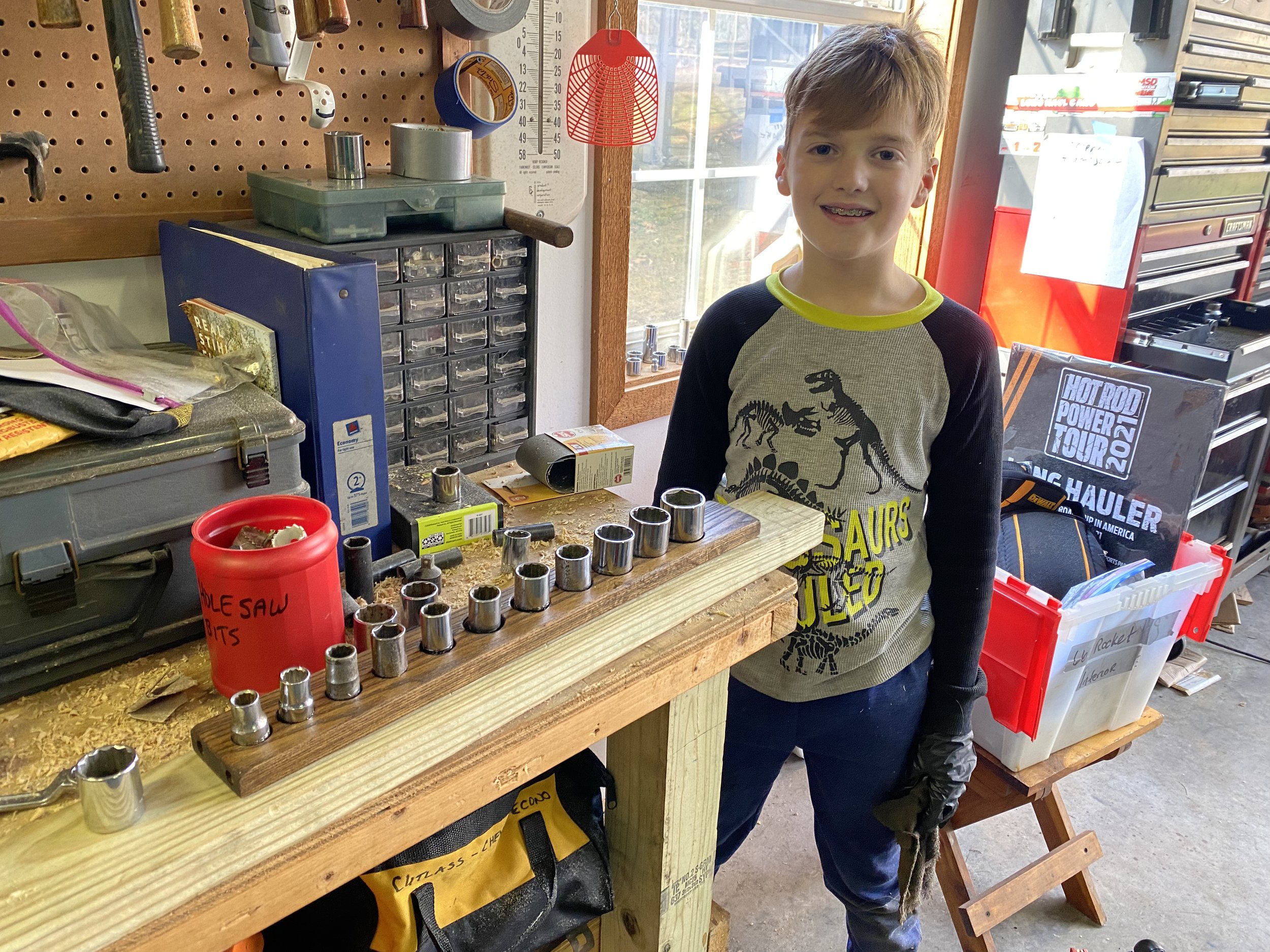Looking Back: 5 Leadership Lessons I Learned in 2021
“if anything is excellent or praiseworthy—think about such things.”
Peter Drucker called My Years With General Motors, “the best management book.” Some have criticized Alfred Sloan, the legendary CEO of GM, for not enumerating the leadership lessons contained in his hefty volume. Sloan’s response: “I am not writing for morons. I am writing for experienced managers. They have no need for me to point out the obvious.”
Drucker disagreed. About Sloan’s comment, Drucker said, “But as every editor soon learns, the obvious is precisely what needs to be pointed out — otherwise it will be overlooked.”
This post contains five leadership lessons I either learned or re-learned during the year 2021. For some it may be an exercise in the obvious, but as Drucker notes, “the obvious is precisely what needs to be pointed out.”
1. Finish It!
Estimates vary, but there are about 650 muscles in the body. And while you won’t find it on any list, I think the “finish” muscle is one of the most important. Finishing . . . an email, a phone call, a paragraph, a project — particularly one that has been stumping you will free your mind and fuel your satisfaction.
I relay this 2021 entry from my journal. Reading it, you get a sense of how good it felt to “check off” those items in my mind:
The “Finish it!” muscle is growing. Yesterday, I finished the book, Mission of God (so good). I finished writing 5 notes to family members. I finished checking and acting on the CEL (Check Engine Light) using my code reader. I went to the office (it was a Saturday) and did much to clear the deck (work my way through stacks of papers).
Procrastination: The easiest thing to do is NOT to do.
Some time ago I wrote a post on procrastination, personifying it as our nasty nemesis disguised as our best buddy: “Procrastination does not come to you wearing a cheap suit. He’s a savvy salesman. After all, he is your friend! He believes the best in you. He wines and dines you on caviar promises of all you can do and all you can be ... tomorrow!”
Growing the “finish” muscle means ignoring that voice. Instead, we must, like John Keating (Robin Williams) in the film Dead Poets Society, continually whisper, Carpe Deim: “Seize the day boys. Make your lives extraordinary.” Translated literally, carpe deim is, “pluck the day.” This day is ripe fruit. Pluck it now. Not tomorrow. No one of consequence makes their mark by whispering, “Carpe crastinum” (seize tomorrow).
Finishing is hard work. Recently, I had to revive a utility trailer we keep at our lake home. Electrical wires were cut, one tail light was out, and the tires had a deadly case of dry-rot. My resuscitation efforts meant a trip around the lake to get tires, replacing the bad tail light, and re-wiring the trailer. When I finished — late in the evening — the tail lights still did not work. Tracing the problem, I realized not only was the wiring bad in my trailer, but also in the van we used to pull it.
Everything inside of me wanted to quit! “I’m done!” But two words echoed in the back of my mind, “Finish it!” And I did. It took a few more hours and and lot of frustration, but there was SO MUCH satisfaction when the work was complete. What’s more, that nagging voice inside of my head, “You need to fix that trailer,” was gone. Exercising the finish muscle silences the “nags.”
Question: What action can you take today to “Finish it!”?
2. Embrace awkward
I am approaching my second anniversary as President of Lancaster Bible College | Capital Seminary and Graduate School. I love my work. In fact, I have always loved the work God has given me, but this assignment has been the most satisfying — and most challenging — of my forty-plus years of full-time employment.
I am a presidential newbie. That means for the first year, and much of the second, I was spectator and participant in a parade of firsts:
My first commencement
My first Board of Trustees meeting
My first donor dinner
My first “State of the College” address
My first address to new students and parents
My first Finance Committee meeting
My first cabinet meeting
My first interaction with local college presidents
My first presidential crisis — COVID-19
I can go on and on describing many floats in that parade of firsts. With the newness came a certain awkwardness at times:
“I don’t know these folks. They don’t know me. How are we going to get along?”
“What is the appropriate thing to say here?”
“What is the appropriate way to dress for this event?”
“Lancaster (PA) culture, wonderful as it is, is so different from Boca Raton (Fl).”
Let me talk about the cultural piece for a moment. As noted above, Shannan and I are from South Florida; Boca Raton in particular. I had more than 13 years of relationship with the church I served. Boca is diverse, vocal, and demonstrative. When I spoke, I was accustomed to audience reaction. When I greeted people, handshakes, hugs, and kisses on the cheek (for ladies) were the norm. Not here. Relationships are deep, but people are more reserved. Audiences listen attentively, but the reaction is far more flat. Greeting people is far less demonstrative.
I suspect all that added up to my feelings of awkwardness. But leaders step into awkward. They prepare. They enter the room. They meet people. They embrace the unknown! They have difficult conversations. And in doing that they prepare the way for others to embrace their own awkward.
I witnessed this first-hand in October of last year. We had a Day of Prayer at LBC. I was leading it. I thought,
“Wouldn’t it be great if we could have faculty and staff encircle the inside of our Good Shepherd Chapel (it seats 1500), and then invite our students to leave their seats, make their way to one of those faculty and staff members, share their prayer needs, and let that leader pray over them?”
I sent a note out to faculty and staff and they embraced the idea wholeheartedly. When that moment came in our Day of Prayer, I shared with the students my own journey about about “Embracing Awkward” and asked them to do just that when it came to these prayer moments. And they did! It was BEAUTIFUL to behold. Students rose from their seats, made their way to faculty and staff (many whom they did not know), took the risk to share their hearts, and were blessed by God as employees prayed over them individually.
Leadership is often a safari into the unknown. At times it’s just plain awkward. Leaders don their pith helmet, step into the jungle, and embrace the awkward.
Question: When do you get that feeling of “awkward”? What does it look like for you to “embrace it”?
3. Margin is more important than vacation
How many times have you taken a vacation, returned, and after just one hectic week of leadership felt like, “I need a vacation?!” I think it happens all the time. Leadership is a delightfully draining enterprise. Vacation is important, but margin is more important.
“Margin: The intentional decision to create space for restorative time.”
What is margin? Margin is the intentional decision to create space for restorative time. Recently, I read Judgment Days: Lyndon Baines Johnson, Martin Luther King Jr., and the Laws That Changed America by Nick Kotz. At one point, Kotz commented on the toll LBJ’s efforts toward the great society, civil rights legislation, and the emerging Vietnam war were taking on him. He shares this excerpt from Lady Bird, President Johnson’s wife:
Lady Bird Johnson noticed a difference in her husband Sunday night. She had been worried about him for weeks. . . . That night, Lady Bird dictated into her diary her thoughts on the doctors’ examination and her husband‘s health: “Essentially, everything is fine – all the basic organs and the functioning thereof. But there is this heavy load of tension and this fog of depression. . . . [The doctors’] prescription is exercise, diet, and a break – to get off to sunshine and rest for a couple of days every two weeks (italics mine). . . . But Lyndon feels chained right here, and it’s having an erosive effect on his personality.”
When the doctor prescribed a break for a couple of days every two weeks he was describing margin.
What margin looks like
Imagine you are driving down an Interstate highway. Northbound and southbound traffic are separated by a concrete dividing wall. You are traveling at 70 mph in heavy traffic. You are in the passing lane, you have a car in front of you, a car behind you, and and an 18-wheeler directly to your right. The margin between your speeding car and the semi tractor trailer to your right is about four feet, and the margin between you and the concrete dividing wall to your left is about a foot. It’s a tight squeeze. How are you feeling at that moment, squeezed between two “immovable objects” with little wiggle room? Probably a bit stressed.
Now, imagine the margin between your speeding car and the concrete dividing wall is ten feet, enough for a car to safely pull over if necessary. Even though the “immovable objects” are the same, the pressure is not.
Margin does not remove the obstacles, but it does help lessen the pressure.
What LBJ needed — and what we need — are the same, creating a rhythm of space for restorative time! What does that look like? It varies, but here are a few ways I build margin into my life:
The morning hours: I am an early riser. I guard 2 to 3 hours each day prior to coming to the office — for personal time to exercise, read, reflect, and write. These are quiet hours. Phones don’t ring. Emails don’t fly. No one is knocking on my door. They are life-giving hours.
The “hobby” and time for it: I’m an unapologetic car guy, and I unapologetically take time for this enjoyment. I have a car to tinker on in PA and a couple of projects at our home in Arkansas. Each year Shannan and I participate in the Hot Rod Power Tour. Others may not “get it,” that’s okay. I know the kind of restorative work it does in me — and therefore I set aside time for it.
Annual family week: Shannan and I have a large family. Each year we gather for a week. There are 36 of us under one roof. We call it a good crazy!
I’ll address this subject at length in a future post, for now let me say that the decision to create space in my day, my week, or in our annual calendar has been instrumental in sustaining me during the pandemic.”.
Question: Do you have enough margin in your life? If not, what one thing could you do (that you are not doing now) that would help fill your tank and restore your soul?
Note: A friend and colleague recommended Margin: Restoring Emotional, Physical, Financial, and Time Reserves to Overloaded Lives, by Dr. Richard Swensen. I have not read the book, but respect the judgment of my colleague and so include it here for your review.
4. New seasons mean adjusting rhythms
This learning is also an adventure in the obvious. For the better part of the last forty years, I have served in the local church. I had a very distinct weekly rhythm that, for me, ramped up in intensity as I approached Sunday. Tuesdays through Sunday were my “work week.” My day off was Monday. Though three-day weekends were rare, I did enjoy a good deal of autonomy relative to my schedule, fewer meetings, and less “crises” with which to contend.
Much of this changed when I came to LBC. While there was a lot going on at Spanish River (our church in Boca), life at LBC is equally full, and more so. The words of my predecessor, Dr. Peter Teague, have proven spot on: “It just comes at you!” There are 277 events in the 2021-22 academic year (Advancement; Arts and Culture; Student sports and activities; Commencements, etc). Those events only represent that which is going on “inside” our institution. “Outside” of LBC, there are relationships to be built with other college presidents, our educational partners, and with civic and business leaders in our city. Added to that there are the usual ancillary conferences and seminars associated with anyone’s work.
For only the second time in 41 years of marriage, Shannan and I had to “find” a church. I’ve always been one of the pastors. Now I am a parishioner. Rather than “leading the group” at church we are working to get established and participate in the life of the church.
My work is different. The geography is different. The weather is different. The culture is different. People are different. None of this is bad. We’re loving it. But our rhythm of life has changed in light of it. To use the wonderful analogy of Dr. Spencer Johnson in Who Moved My Cheese?, the cheese has moved. We can either gripe about it, fret over it, or move with it.
Here are three ways we are adjusting our rhythms in this season:
We are intentionally leveraging the academic calendar to create recoup time and engage family. As noted, we love Lancaster, but most of our kids and grands — and our family home — are outside of Pennsylvania. We have made adjustments in light of this. When the semester is over, we leave PA for AR and time with our family.
We are giving ourselves time to adjust. Remember, I’ve been a pastor for decades. I love the local church and know it is central to God’s work in our lives and in his world. At the same time, I’m adjusting to an entirely different work, so we are cutting ourselves a little slack as we engage in the life of Wheatland Presbyterian Church, our new local church family.
We are learning that “together time” looks different — and that’s okay. Shannan has always partnered with me in the roles I have had. She loves people, makes them feel at ease, and is much more relational than I am. As my role has changed, our approach of working together is the same, but it’s different. We’re figuring out what “different” looks like.
Question: If you are in a new season, what rhythm of life do you need to adopt or adjust to strengthen and sustain you?
5. There is no substitute for time and relationship
Leadership is a people business. In my environment, that means spending time with donors who support the work, students who are the work, and staff and faculty who enable the work. Everyone needs time.
I remember the days when Leadership expert John Maxwell was Pastor John Maxwell. I subscribed to his Injoy Life Club and received a regular cassette tape as part of his Injoy ministry. I remember John talking about Sunday mornings when he was the Senior Pastor at Skyline Church in La Mesa, CA. John said he learned the importance of “walking slowly through the crowds.” I needed that. Still do! There is simply no substitute for time and relationships.
Leadership is time on task and relationship
My predecessors at both Spanish River Church (Dr. David Nicholas) and Lancaster Bible College (Dr. Peter Teague), were both relational ninjas. The two men interacted with people differently, but both were very intentional about investing time in and with people.
When I look at my life and leadership, I lean toward task. Sometimes . . . in my desire to complete the task, I can ignore the relationships that make the task possible. Okay, I don’t think I ignore them outright, but there are definitely times when I give cursory attention or don’t linger in a relational moment because I want to check off the next item in the To Do List in my mind.
That’s not good. Hurrying past people for production is not good leadership. It runs contrary to the way of Jesus, Messiah, King, Savior . . . and the world’s greatest leader. Just read Mark’s gospel to see this. Jesus is always with people:
Jesus was with Simon and Andrews by the Sea of Galilee. Mark 1:16
Jesus was with the people when teaching in the synagogue. Mark 1:21
Jesus was with the man who had an impure spirit. Mark 1:23ff
Jesus was with the man who had leprosy. Mark 1:40
Jesus was at dinner with the tax collectors and sinner. Mark 2:15
Jesus was with his disciples walking through the grainfields. Mark 2:23
Jesus was with his detractors when they took issue with his actions. Mark 3:1ff
Jesus was with his disciples when they were scared out of their wits. Mark 4:40
Jesus was with a grieving father and a sick woman. Mark 5:23, 25
Jesus was with the disciples when it was time to retreat. Mark 6:31
Jesus was with his disciples at their hour of peril. Mark 6:51
Leadership is always task and relationship. And there is much joy in that. Shannan and I were at our home in Arkansas last month. My hot rod shop is there and so was Jake, my 10-year-old grandson. Remember, I’m a project guy, a task guy. One of my hot rod projects is an old Ford Econoline van. I needed to pull the engine and clean up fifty years of crud. Jake wanted to help. Part of me thought, “I’m going to get this done much more quickly by myself rather than inviting a ten-year-old into this mess.”
I was wrong.
Jake joined me and worked with me — hours on end — over four days to pull that engine and to make a tool rack. We had a lot of fun. It was also a great reminder that the best work is always task and relationship; and with both come progress, satisfaction, and a lot of smiles.
Question: In your leadership, do you lean toward task or relationship? What could you do to create a more healthy tension in your life and leadership?
leadership is a joyful journey
I began this post highlighting Drucker’s insight, “the obvious is precisely what needs to be pointed out.” I think one reason we need the obvious is that in knowing it, it may be a little easier to ignore it. “Hey, everybody knows that!” So knowing the tendency to equate knowing with doing, let me conclude with the words of Samuel Johnson, the 18th century English literary critic, poet, playwright, essayist and biographer: “People need to be reminded more often than they need to be instructed.”
I offer these five lessons as just that, a reminder of lessons learned and re-learned, that help to make the leadership journey more effective and more satisfying!
_______
Notes:
“the best management book” from My Years With General Motors, by Alfred P. Sloan. New York: Doubleday. 1962. 1990 (paperback edition contains a new introduction by Peter Drucker, from which this anecdote comes), p. x.
“I am not writing for morons . . . “ from ibid, p. x.
“the obvious is precisely what needs to be pointed out . . .” Ibid, pp. x-xi.
Lady Bird noticed a difference in her husband . . . from Kotz, Nick. Judgment Days: Lyndon Baines Johnson, Martin Luther King Jr., and the Laws That Changed America. Boston: Houghton Mifflin Company. 2005. Page 308.


